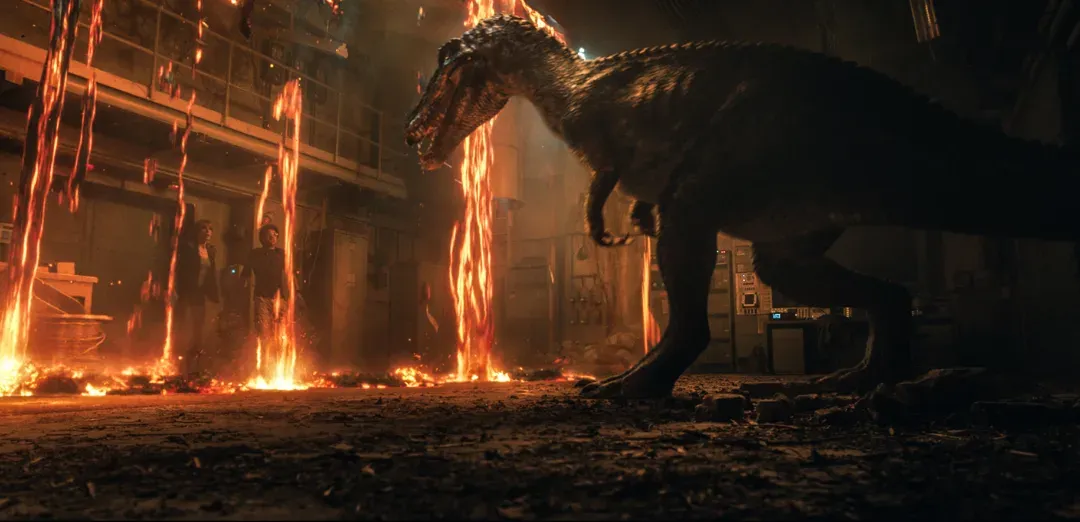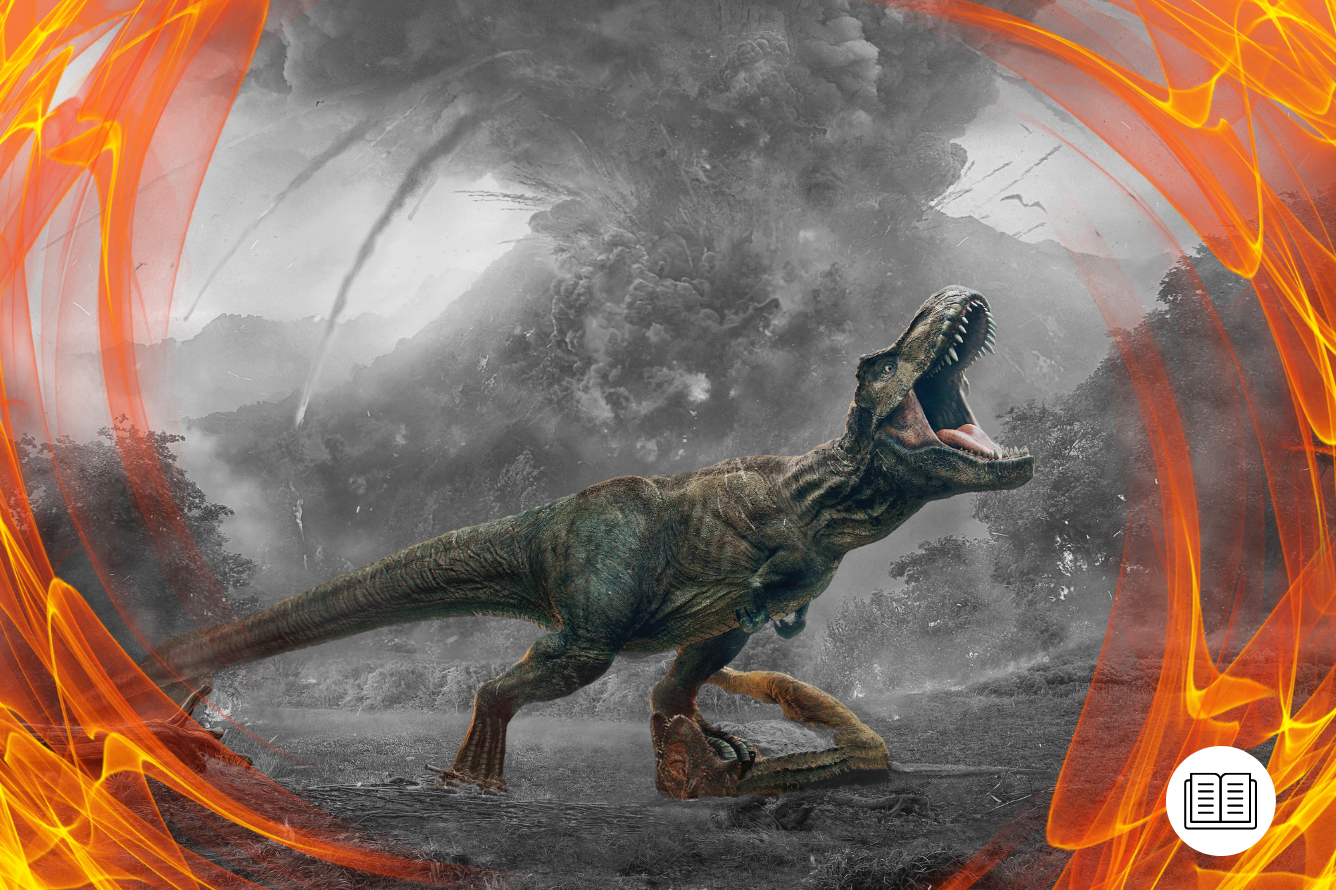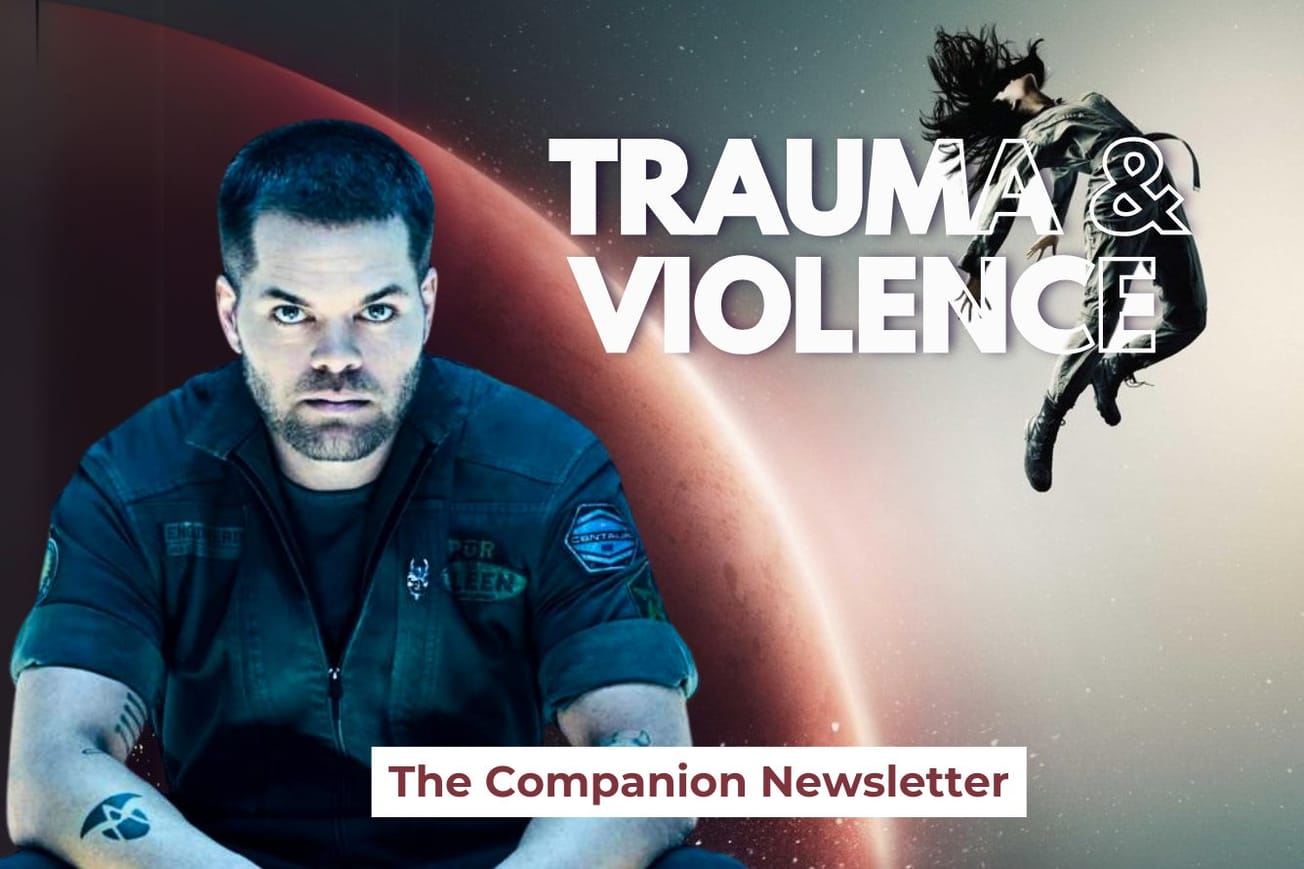Even without the intrusion of the Tyrannosaurus Rex, we – the human race – are dangling over a series of tipping points. We are on the precipice of +2℃ of global temperature rise as well as approaching a sixth mass species extinction event. Anthropogenic forces, such as deforestation and rising carbon emissions, have encumbered our planet’s ecological and biological balance to a breaking point. With this era being called ‘The Anthropocene,’ extinction has tragically become a part of our day-to-day lives, be that our own looming extinction event or the series of ongoing extinctions resultant of our imbalanced use/abuse of the planet’s resources.
More and more, we’re seeing these undeniable environmental changes and the imminent threat of our extinction in the age of the Anthropocene addressed in mainstream cinema, beyond the dusty post-apocalypse of Mad Max: Fury Road (2015) or the violent natural world of art-house mind-benders like Annihilation (2018). Jurassic World: Fallen Kingdom (2018) might seem like a surprising, unlikely example but it tackles this issue so prominently that it’s impossible to ignore, drawing its inspirations not from studio-mandated PowerPoint presentations but from the themes of Michael Crichton’s original 1990 bestseller, Jurassic Park.
Volcanoes explode, people get eaten and dinosaurs wail with agony as much as they roar with anger in the most recent entry to the now 27-year-old Jurassic Park franchise (a full 30 years if you include Crichton’s novel, but more on that later). For my money, it’s not the finest entry into the series, but what particularly struck me about the film is its constellation of extinction events, all of which seem relevant to the impending extinction events of the contemporary moment.
Jurassic World: Fallen Kingom: A New Era of Anthropocene
Just as we have entered a new geological era in the so-called Anthropocene, Jurassic Park supposedly entered a new era in turn. Indeed, Jeff Goldblum’s returning Dr. Ian Malcolm prophetically tells us “We have created a new era. Welcome to Jurassic World.”
Loyal to the words of Dr. Malcolm, one of the core concerns of the film is the means by which we should navigate the ethics of this extinction, be that our own or the dinosaurs’. This platform for ruminating on the notion of mass species eradication is of staunch pertinence to the pressures of the Anthropocene, which calls for us to consider the possibility of humanity’s self-perpetuated extinction, and the collective extinction of 99 percent of all organic life.
Here, at least, the fifth film in the franchise shows more fidelity to the themes of Crichton’s novel than the first.
Jurassic World: Fallen Kingdom sees Isla Nublar’s de-extinct dinosaurs faced with re-extinction as the island’s volcano becomes active, threatening the lives of all its inhabitants in the process. This faces humanity with a troubling question; should we save the dinosaurs? Or, should we leave them to die and consolidate our footing at the top of the food chain? Given the disastrous consequences of human/dinosaur entanglements seen in every other entry to the series, it is clear that letting these creatures die out would prevent further calamities to the human populace.

The opening half of Fallen Kingdom, rather than seeing humanity’s war against these creatures, as per the hunting sequence in Jurassic Park: The Lost World (1997), for instance, situates the dinosaurs as endangered creatures needing our help instead. Rather than the dinosaurs immediate threat being their human captors, as in the previous installments, the threat here is of a distinctly environmental tenor. Isla Nublar’s volcano is spewing ash and lava at an alarming rate, facing the dinosaurs with eradication if they are not evacuated.






